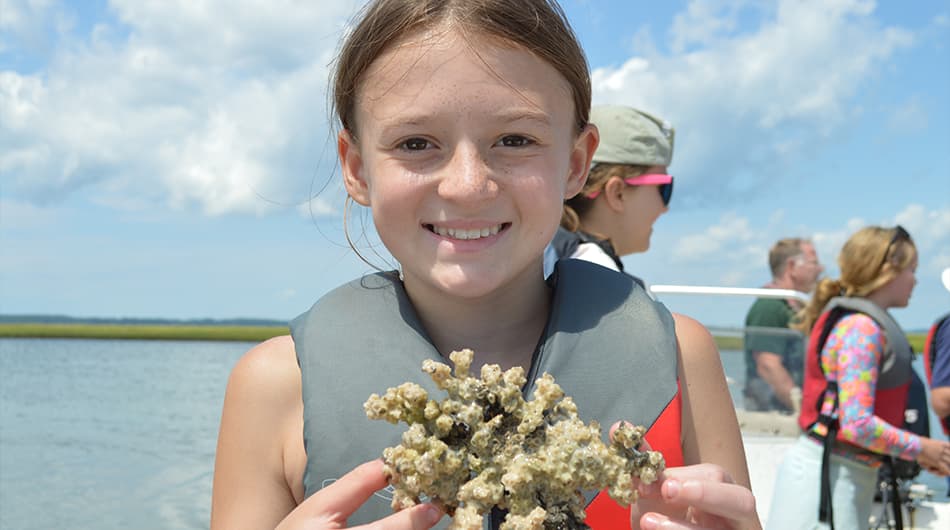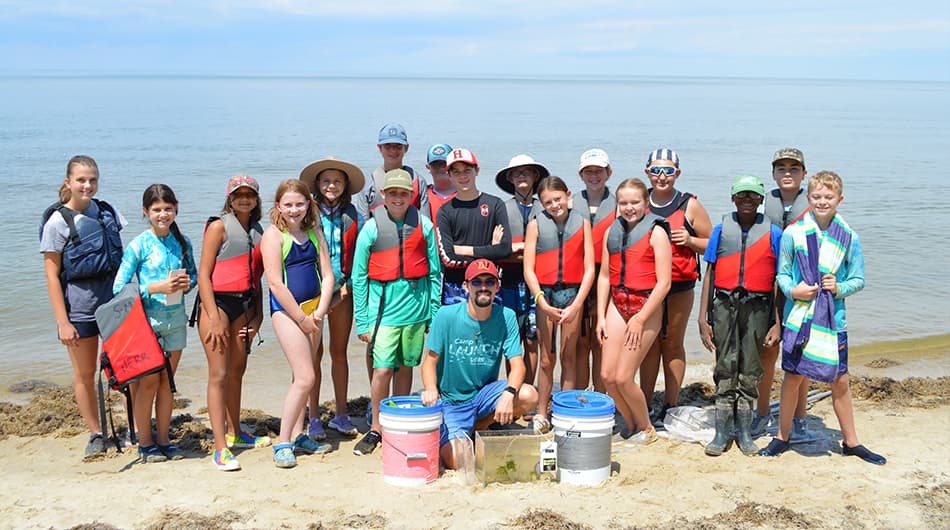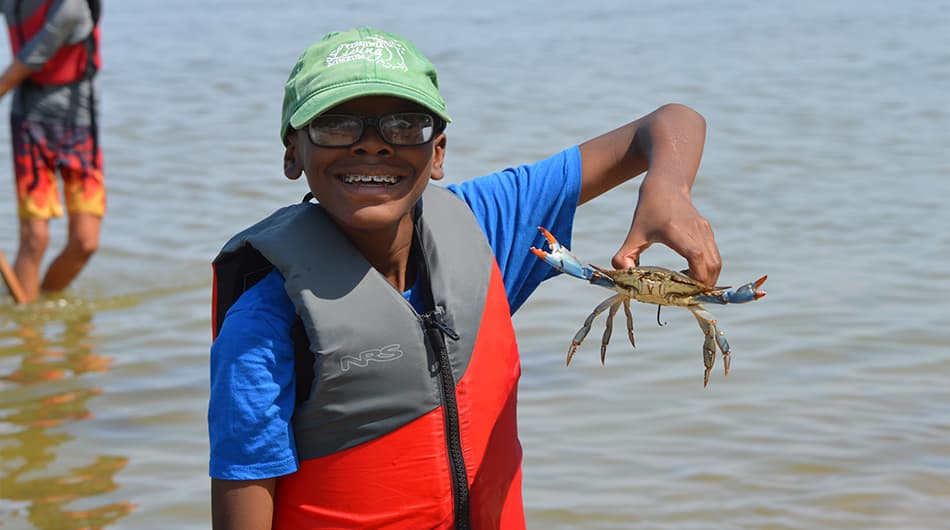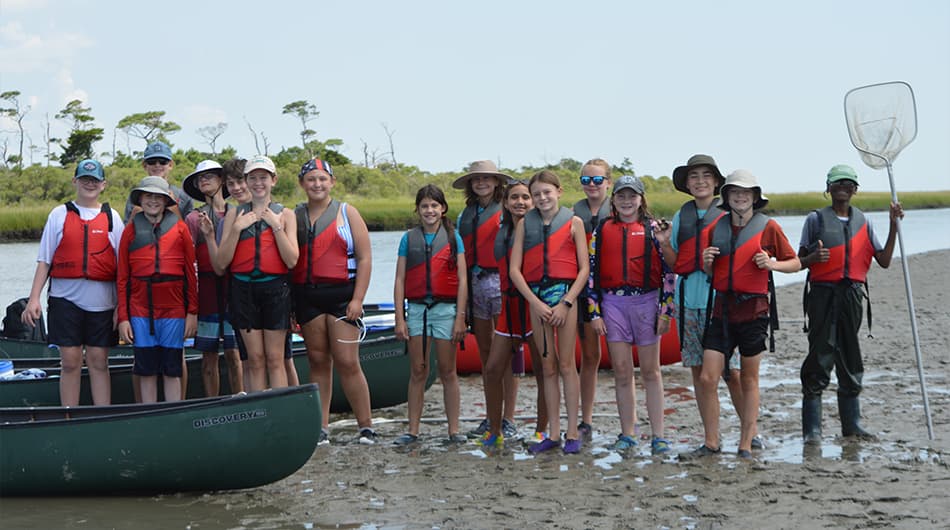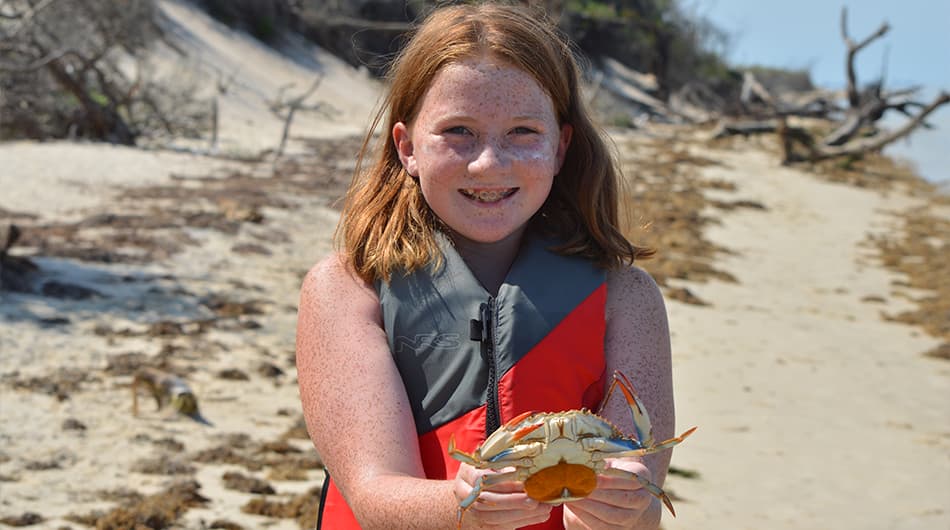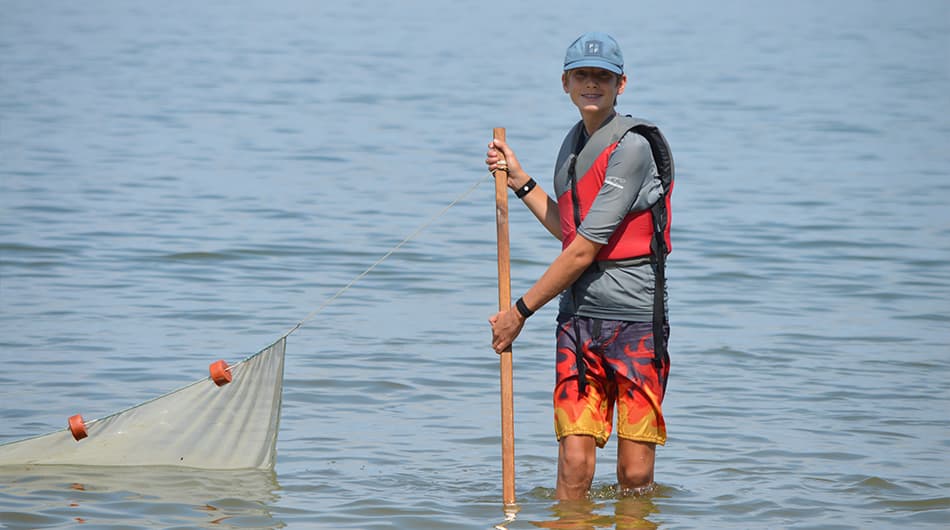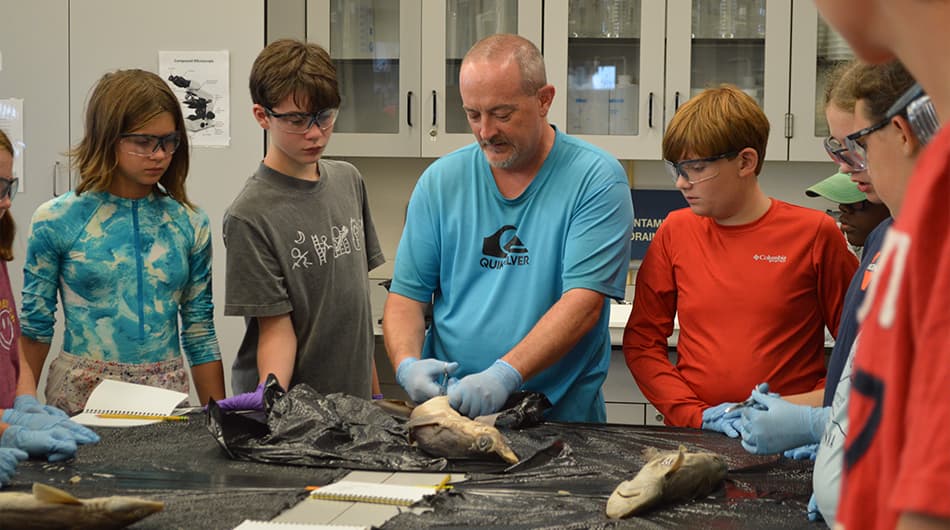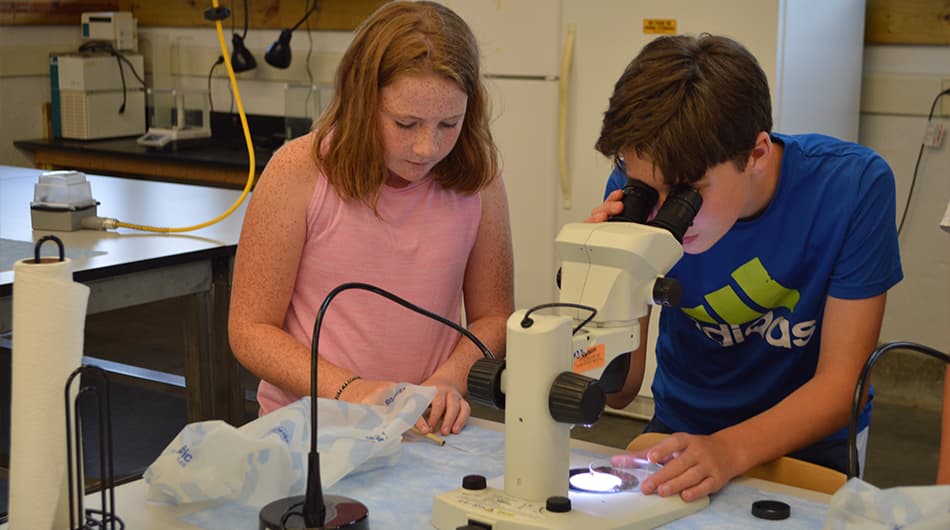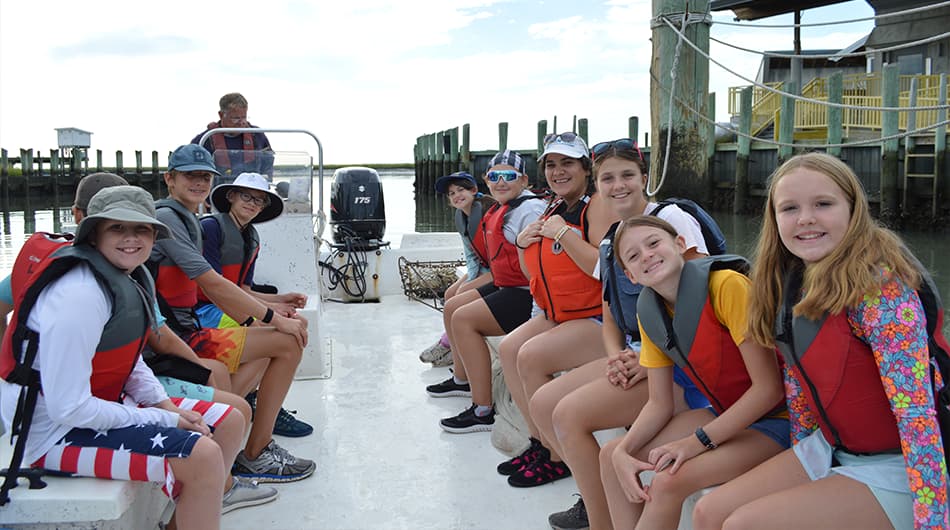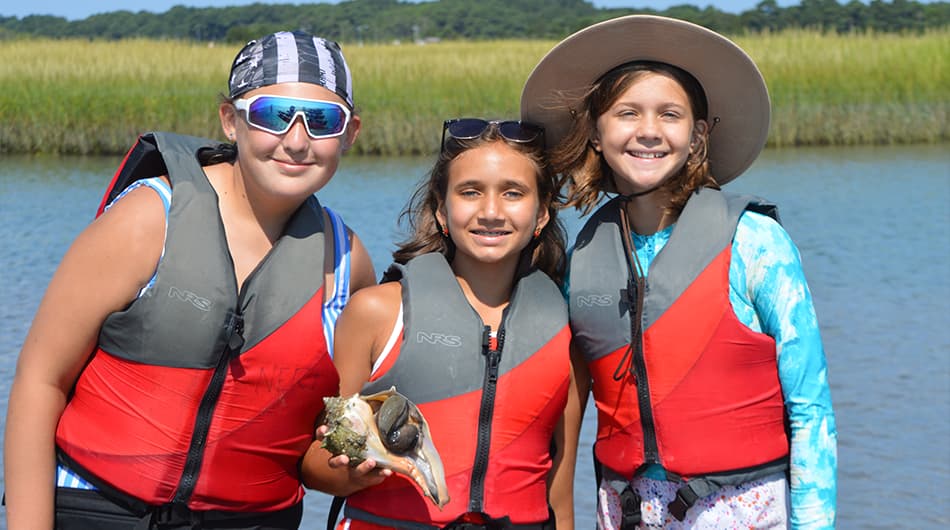“I’ve learned a bunch”: Summer camps provide hands-on education for young students
Since 2009, VIMS and William & Mary’s Batten School for Coastal & Marine Sciences have welcomed an enthusiastic group of rising third through eighth graders for week-long, hands-on programs that enable students to learn about the Chesapeake Bay, coastal ecosystems and environmental stewardship. This summer, VIMS and the Batten School hosted 64 student campers and seven Junior Counselors.
“When I found out I got accepted to this camp, I got really excited and started jumping around,” said Bailey, a rising eighth-grade student who attended summer camp in August. She said the best part of camp was “canoeing and the seine netting. I caught a summer flounder and a lot of little fish... I’ve learned a bunch.”
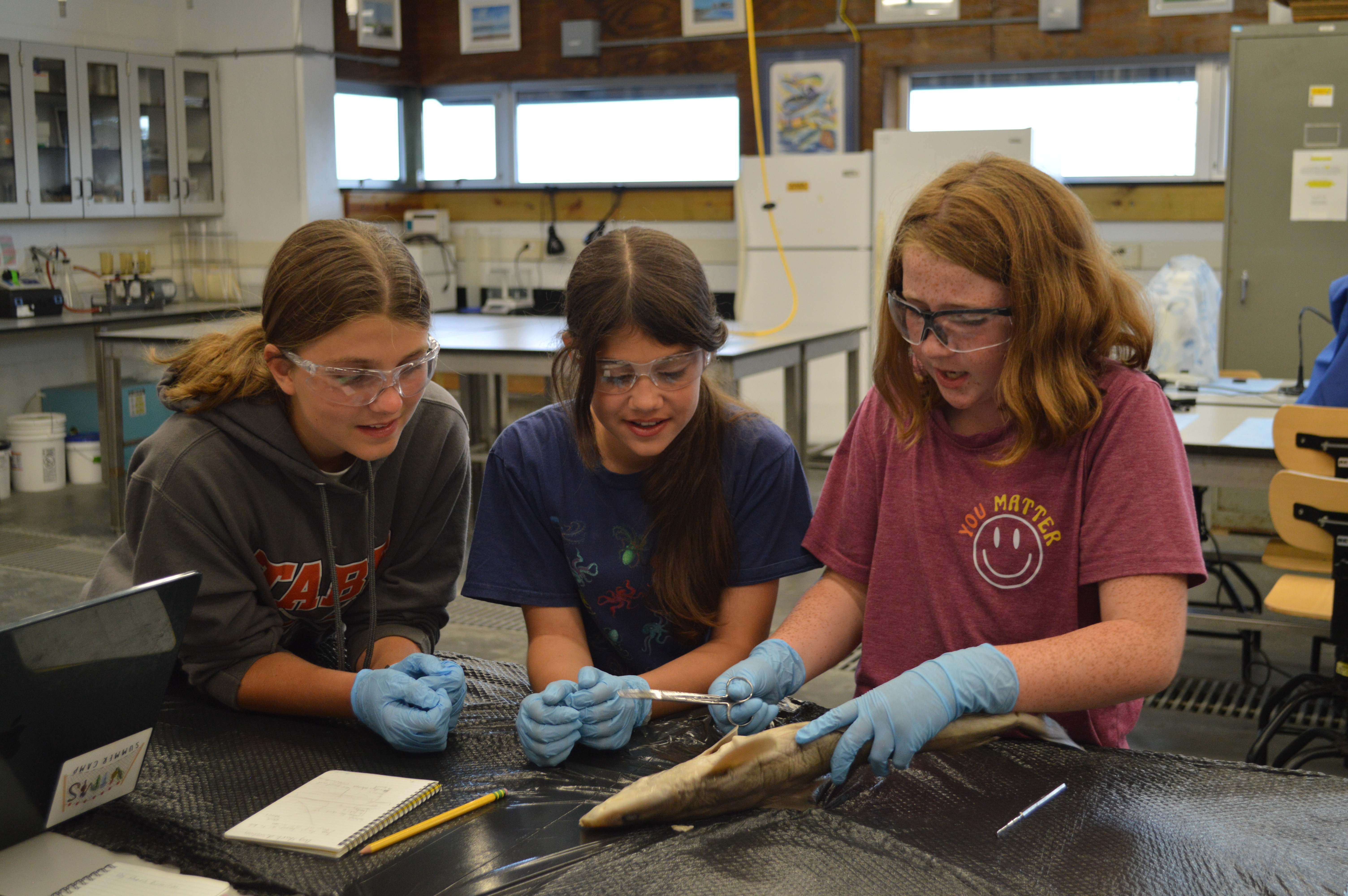 Offered at no cost to campers — thanks to generous support from private donors — and run by the Chesapeake Bay National Estuarine Research Reserve in Virginia (CBNERR-VA) at VIMS and the Batten School, these camps are tailored to meet the learning stages of specific age groups. Rising third- and fourth-grade students, referred to as “Bay Buddies,” and rising fifth- and sixth-grade students, or “Chesapeake Champions,” participate in a day-camp experience on our Gloucester Point campus. Later in the summer, rising seventh- and eighth-grade students are our “Estuary Explorers,” who head to the VIMS and Batten School Eastern Shore Lab for an educational sleepaway camp.
Offered at no cost to campers — thanks to generous support from private donors — and run by the Chesapeake Bay National Estuarine Research Reserve in Virginia (CBNERR-VA) at VIMS and the Batten School, these camps are tailored to meet the learning stages of specific age groups. Rising third- and fourth-grade students, referred to as “Bay Buddies,” and rising fifth- and sixth-grade students, or “Chesapeake Champions,” participate in a day-camp experience on our Gloucester Point campus. Later in the summer, rising seventh- and eighth-grade students are our “Estuary Explorers,” who head to the VIMS and Batten School Eastern Shore Lab for an educational sleepaway camp.
“Because we can work with them not only for the week, but also returning to summer camp multiple times through the years, we really get to build relationships with the students,” said CBNERR-VA Education Coordinator Sarah Nuss. “The kids like all the hands-on experiential things, like getting in the water, or dissecting a shark or going out on a boat, but we also have a lot of structure. While it is camp, and we make it fun, we are making sure they’re learning something too.”
Bay Buddies seine in the York River, learn to use microscopes, use field guides, make crafts, and complete projects to benefit the Bay. Chesapeake Champions also seine in the river, as well as canoe, dissect squid, and use a variety of scientific tools including water quality equipment. Finally, Estuary Explorers do many of the same activities, including dissecting sharks, all while exploring both the bayside and oceanside of the Eastern Shore.
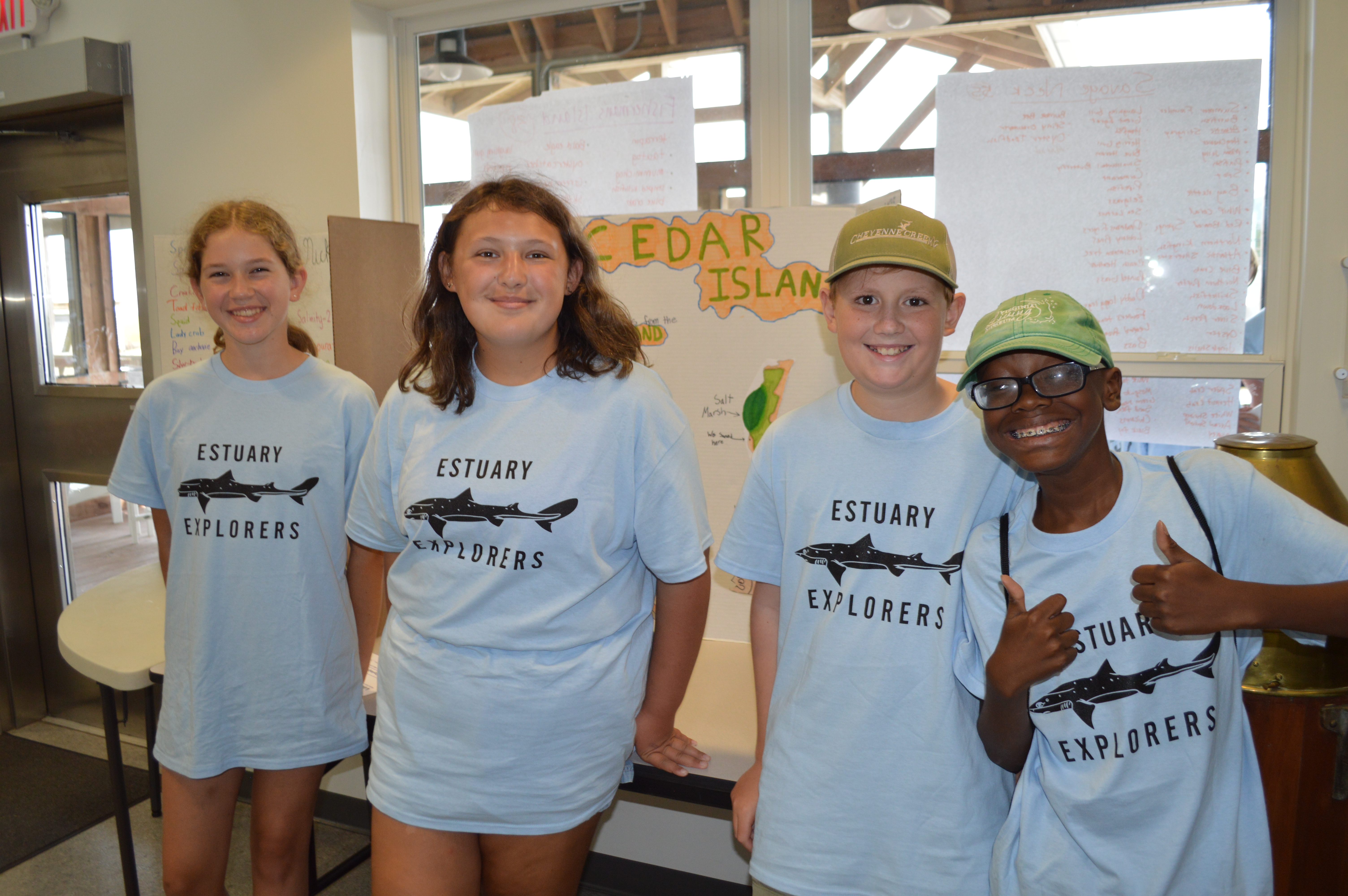 Alex, a rising eighth-grade Estuary Explorer whose favorite camp memory was pulling up a stingray during seine netting, said he would recommend the summer camps at VIMS and the Batten School to other students because “they’d definitely have some really fun adventures.” Bailey agreed that students create “memories, and have a good learning experience, too.”
Alex, a rising eighth-grade Estuary Explorer whose favorite camp memory was pulling up a stingray during seine netting, said he would recommend the summer camps at VIMS and the Batten School to other students because “they’d definitely have some really fun adventures.” Bailey agreed that students create “memories, and have a good learning experience, too.”
High school students who previously participated in a summer camp can return to the program as Junior Counselor volunteers, leading field and lab activities and inspiring young campers. Megan Way, a rising 11th-grade student and recent counselor for the Estuary Explorers said, "As a camper, I developed a new respect for the nature around me, especially the Bay watershed. It was a great program, so I wanted to come back and give my time to volunteer... Being [a Junior Counselor] has been great.”
Erika Johnston-MacAnanny, a parent who has had two children participate, is effusive about the summer camps. “James and Elizabeth have really been engaged and fulfilled by the wonderful programming that you work so hard to execute... They both appreciate the opportunity to be considered as Junior Counselors in the future,” she said. “Thank you for deepening a respect and appreciation in them for the wonders of our natural marine environment.”


